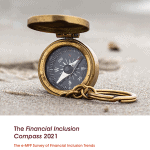A Digital Approach to Reducing Educational Inequality in Africa – During and After COVID-19
As COVID-19 continues to spread through sub-Saharan Africa, it’s shining a spotlight on previously existing social issues that are likely to worsen the pandemic’s impact. For instance, in Kenya, income inequality is extreme: The top 0.1% earn more than the bottom 99.9%, and an estimated 36.1% of the population live on less than US $1.90 a day. In the absence of a strong social safety net, income inequality translates into pervasive challenges across all facets of life. According to a 2014 survey, among the poorest 20% of households, over 50% reported lacking food or the means to purchase food for their families on a weekly basis, 59% did not have access to water or soap in their homes, and less than 10% of parents completed elementary school.
COVID-19 is expected to exacerbate these inequalities. As of 2014, the informal sector comprised an estimated 83% of employment in Kenya. This represents millions of small-scale traders, craftspeople and entrepreneurs whose ability to operate is threatened by restrictions put in place to slow the spread of the virus. The 2.5 million residents of Nairobi’s slums, accounting for 60% of the city’s population but only 6% of its land – will be hardest hit. Research suggests that COVID-19 could be up to 10 times deadlier in such settings.
Beyond the immediate impacts on income and health, the pandemic will have long-term impacts on the educational attainment of children in low-income families. Over 15 million students in Kenya, and over 253 million students in sub-Saharan Africa, are not in school due to closures caused by the crisis. Ministries of Education have moved quickly to make educational content available via radio, television and the internet, but these channels can hardly replicate the in-person support of an actual teacher – and parents will struggle to tutor their children in content they have never been taught. Indeed, a recent study shows that about 80% of students are missing out on these virtual classes. And experts forecast that low-income students will fall farther behind and may not return to the classroom once the crisis is resolved, increasing the numbers of out-of-school children and youth. Girls are likely to bear the heaviest burden, halting progress made in addressing gender disparities in education.
Eneza Education was founded to tackle intergenerational poverty through high-quality, low-cost, low-tech educational material. While we could hardly have predicted the current educational crisis, our team has spent the last nine years developing a platform tailored to low-income students in sub-Saharan Africa. As it happens, this educational channel is ideally suited to meet the needs of young students in the time of COVID-19. Our platform provides individualized, interactive study content via SMS texts – so no smartphone is required. This content covers national curricula for all primary and secondary classes in the countries where we operate. It also includes digitized revision papers with deeper content for class levels 4, 8 and Form 4, which are the years when students sit for national exams that determine their ability to continue their education in government-run schools.
Results have shown that our platform works. According to our surveys, 98% of parents believe that Eneza’s platform has improved their child’s life “a lot,” 54% of parents noted an increase in school performance, and 19% said that the platform has made their children more disciplined about studying. We provide all of this to our learners for KES 3 ($0.03) a day.
However, in light of the current circumstances, it’s clear that students need even more support. We see education as a fundamental human right, and felt the need to make our content accessible to all students during this crisis. That’s why, in partnership with Safaricom, we are now providing temporary free access to our platform through May 31. Safaricom has provided funding, marketing support and assistance in moving our content online (including free daily data bundles to allow students to access the platform on their phones.) We are in active discussions with partners to find ways to extend this program, and even expand it to the other countries where we operate.
The response to this partnership has been impressive. The numbers show that students across Kenya are keen to keep learning. Since April 1, 800,000 new students have accessed our learning resources. At the time of writing, our platform has over 1 million subscribers across every county in Kenya. In the last week we have averaged around 300,000 daily active users completing about 200,000 lessons a day with 99% uptime – so the platform has remained stable despite these huge increases in traffic.
Along with supporting students during the crisis, this partnership is helping us build a stronger foundation to better serve students after the pandemic. For example, our “Ask A Teacher” service – which allows students to submit questions and receive SMS responses from our network of instructors – has grown from 2,000 to 20,000 questions a day. This illustrates the importance of individualized support, and provides us with critical insights about students’ learning gaps. We are actively working on leveraging this data set to create a chatbot capable of delivering quality responses within minutes at a lower cost. Innovations like this will be critical to reducing educational inequality in Kenya.
The Eneza team is working around the clock to enable more learners to use our services, ensure that our platform never crashes, and continuously develop deeper content in the areas where we see students struggling. Our team is truly amazing, but we can’t do it alone. We are currently mobilizing resources to increase our content development capacity, as well as increasing the number of teachers we employ to provide individualized Q&A support to our rapidly expanding learner base. If you or your organization can support us in these expansion efforts, please do not hesitate to contact the Eneza team.
Wambura Kimunyu is the CEO of Eneza Education.
Photo provided by Eneza Education.
- Categories
- Education, Technology



